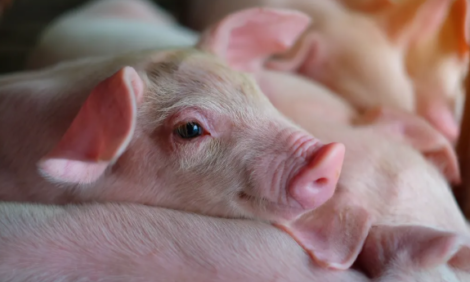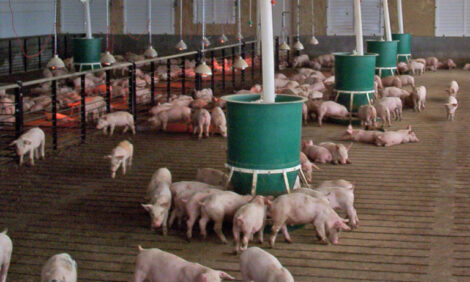



Analysis of Salmonella Pre-harvest Control Strategies
A panel was concluded it is unlikely that any Salmonella control intervention assessed could be recommended to swine producers as any benefit is likely to be outweighed by the cost, according to Annette O’Connor of Iowa State University in a report for the US National Pork Board.The purpose of this project, reported Annette O’Connor of Iowa State University, was to provide a comprehensive description of the efficacy of mandated control programmes for pre-harvest Salmonella spp. used by major pork exporting/importing nations. Such information enables the industry to be aware of the approaches used that may affect trade and food safety.
The first two aspects of the project were to describe mandated Salmonella spp.-specific pre-harvest control approaches in major pork exporting/importing countries.
The researchers searched grey and peer-reviewed literature for reported programmes and contacted individuals in these countries. The information was difficult to find and verify. Their conclusion is that no major pork-producing countries have mandatory Salmonella spp.-specific pre-harvest control programmes except Denmark. Denmark requires mandatory declaration of Salmonella spp. status prior to sale and testing of purchased feeds for Salmonella.
The thirs aspect of the project was to collate estimates of the prevalence of Salmonella spp. pre-harvest in the United States. They used data from two prior reviews and an updated review of the literature. They collated estimates of the prevalence of Salmonella positive herds and the within herd prevalence (Figure 1).

The fourth aspect of the project was to summarise the efficacy of mandated programmes. The Danes suggests their combined pre-harvest and post-harvest approach is effective but the importance of the pre-harvest component is not clear.
An assessment of the Belgium voluntary programme which focused unilaterally on primary production concluded: 'The evaluation of this Salmonella action plan demonstrated that it had only little effect on the level of Salmonella infection in pigs'.
The European Food Safety Commission has published two cost-benefit assessments of pre-harvest control of Salmonella spp. in finishers and breeding pigs and concluded: 'On the basis of current scientific advice and the experience of Member States, it is not possible at this time to demonstrate cost-beneficial interventions to reduce Salmonella infections at EU level in either breeding pigs or slaughter pigs, or in combinations of both herds. Sensitivity analyses indicate that positive cost-benefits can be found only in extreme scenarios.'
The final aspect of the project was to summarise the findings about the effect of pre-harvest interventions and assess the GRADE system for making recommendations.
The Iowa State University team used published reviews of Salmonella pre-harvest interventions and the GRADE process to assess the efficacy. The GRADE process uses four factors to reach a conclusion for adoption of an intervention - the quality of the evidence, the cost-benefit, the balance of benefits and harms and the balance of values and preferences.
The panel concluded it was unlikely that any intervention assessed would be strongly recommended to swine production entities for adoption based either on lack of evidence for an effect, or very low cost versus benefit, i.e. it would cost much more than the benefit.
August 2014








